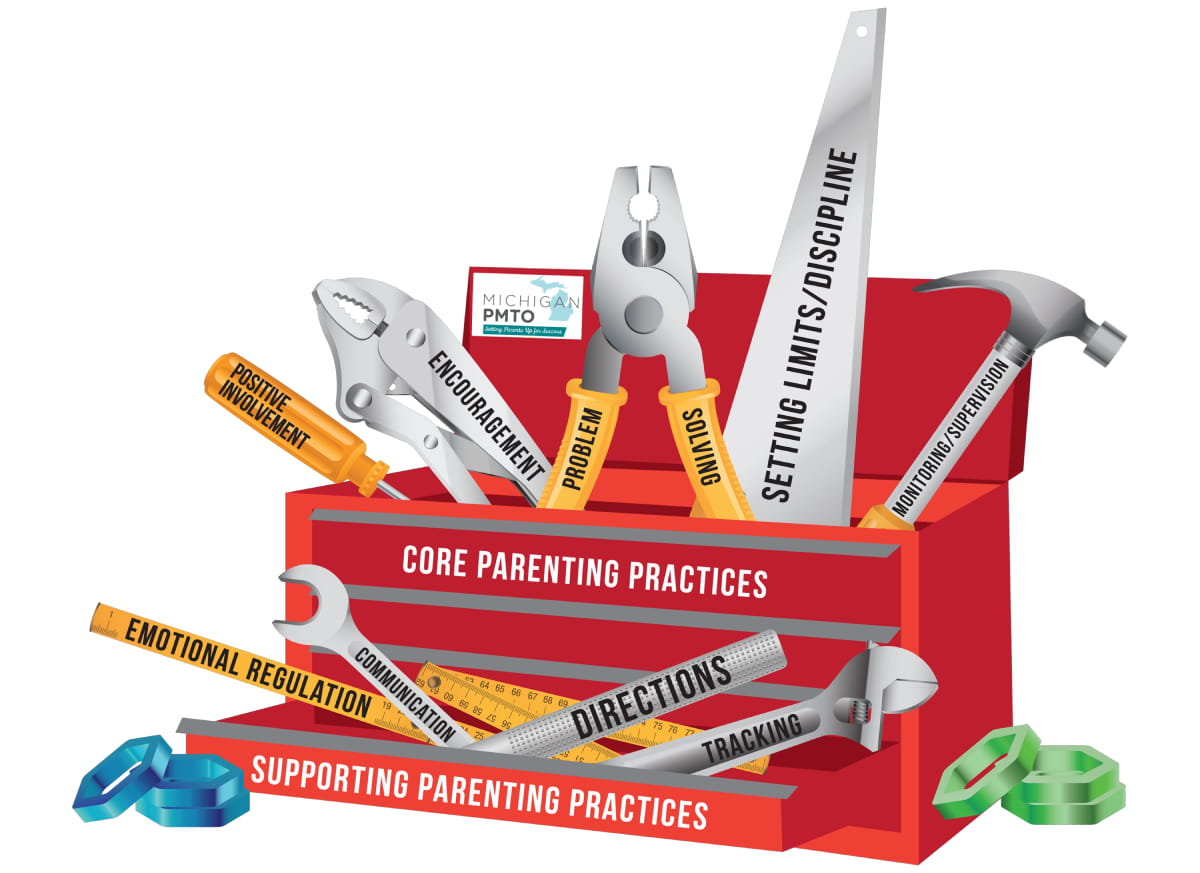About Us
PMTO

Parent Management Training—Oregon model (PMTO) provides the tools parents need to improve their child’s behavior and to address specific family challenges. PMTO is an evidence-based practice that recognizes the vital role parents play as the primary change agents within their families.
In the program, a specialist meets with a child’s parents or caregivers for 10 to 14 sessions and covers 5 core concepts:
- Encouragement
- Limit Setting
- Positive Parent Involvement
- Monitoring
- Problem Solving
Along with these core concepts, supporting concepts are introduced too: Effective Directions, Emotional Identification and Regulation, Active Communication, and Tracking.
The PMTO specialists’ proven methods include modeling and role playing. Specialists act as coaches, empowering parents to tackle their family’s individual challenges and expand on their family’s unique strengths.
PMTO was developed by Dr. Gerald R. Patterson and his colleagues at the Oregon Social Learning Center and is supported by over 50 years of ongoing research. One nine-year follow-up study found reductions for youth in delinquency, deviant peer associations, and depression as well as maternal improvements in education, occupation, and income.
To support and improve specialists’ PMTO skills, sessions are recorded and viewed by their trainers and coaches. The focus of the videos is the specialists, and families’ information is held in strictest confidence, adhering to all HIPAA standards.
PMTO model and specialists believe parents are their child’s best teachers. They support and encourage parents to find in themselves that best teacher.
PTC

Parenting Through Change (PTC) presents the same parenting skills as PMTO but does so in a group setting. While the individual approach will work better for some, the group dynamic of PTC is more effective for others. PTC provides a safe, supportive environment where parents can connect with other parents who are struggling with the same challenges.
PTC families usually come to these classes through the CMH intake process. The intake specialist can recommend either the individual PMTO approach or a PTC group, as available.
For specialists who are already PMTO trained, PTC requires an additional four days of training that allows them to serve more families in their community. PTC groups must always include at least two leaders, one being a specialist, which also give these specialists an opportunity to collaborate with their colleagues.
PTC-R

Parenting Through Change—Reunification (PTC-R) is a very similar group approach to PTC except PTC-R is designed for the specific needs and challenges of parents whose children have been removed from the home and have entered the foster care system. PTC-R consists of ten weekly meetings and provides additional monthly support meetings until the child returns home. After the child is back in the home, a Parenting Through Change—Return Home (PTC-RH) specialist will follow-up with six individual PMTO-like sessions.
For the specialist, PTC-R is an extra training after PTC training. That’s usually followed by a one-day PTC-RH training, though anyone trained in PMTO can take the one-day PTC-RH training without first participating in PTC and PTC-R.
Like the PMTO program, PTC and PTC-R are evidence-based strategies proven effective through extensive research. Specialists are continually assessed and coached after training to ensure they maintain fidelity to the PMTO model.
